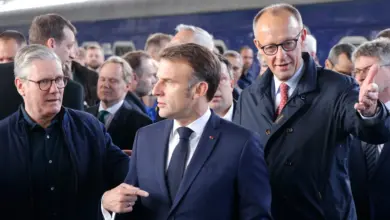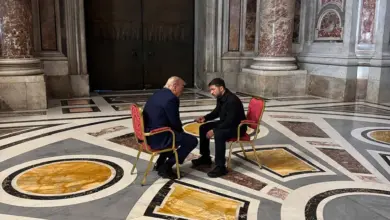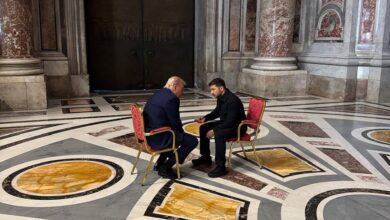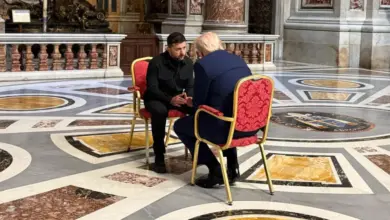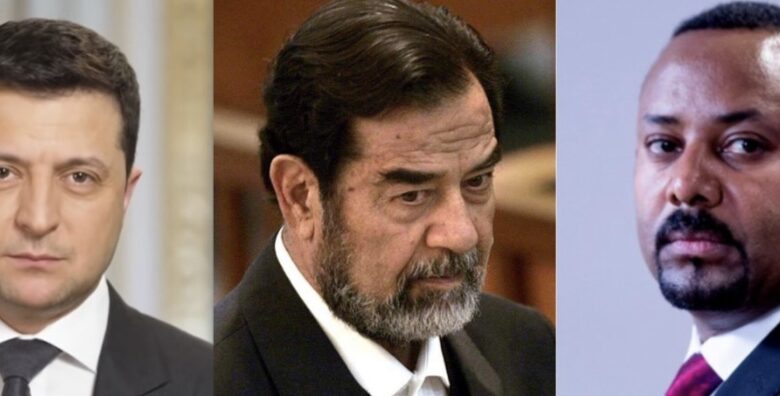
It was very early in London. Big Ben was striking 6 am and I was walking by, feeling cold despite my coat, scarf, hat, and gloves. I crossed Whitehall towards St James’s Park and continued walking sharply, in spite of an ache in my left leg reminding me of a nasty accident I had three years ago in Kenya.
I am not usually much of an early riser nor do I enjoy walking in the cold, and breakfast meetings I try hard to avoid. However, this one I could not miss.
I arrived ten minutes late to Chez Antonio Café and already Josef Moss, a prominent and very influential political operator in Brussels was there; Nicola Ayesh, an Iraqi businesswoman with a significant global tech empire; and our host Pierre Pincon, a very prominent and influential member of France’s ruling party.
After early pleasantries, we placed our breakfast orders (plain omelets for Pierre and me, waffles for Nicola and cereal with berries for Josef, plus English Breakfast tea all around and orange juice for Pierre and Nicola).
Pierre had invited us to discuss his forthcoming roundtable in Paris. Originally it was planned to focus on Euro-Mediterranean regional relations but with the Ukraine crisis taking center stage, Pierre asked for this meeting to switch the focus of the event.
Pierre sliced his omelet horizontally and vertically, placed a quarter on a piece of brown toast, and between bites he and Josef were analyzing the status of Ukraine.
Nicola and I finished our breakfast and we were both listening to Pierre’s plans for his forthcoming roundtable which he earnestly shifted to focus on failed leadership. Pierre brought to the table attention that John Mearsheimer, the well-known real politics University of Chicago professor, had clearly and in a detailed manner predicted the Ukraine crisis six years ago. Nicola added that Henry Kissinger wrote an opinion piece about Ukraine’s future three years ago and forecasted the downfall of Ukraine if it took sides between Russia and the West.
It appears that there was no other scenario except wherever you looked there was failed leadership regardless of the explanation you put forward.
Josef’s view was that Putin was a dictator and would not accept Ukraine joining NATO at any cost. Pierre explained that Biden, Johnson, and the EU gained by enticing Russia to invade Ukraine. Pierre added that Biden needed to get his polling numbers up and stand up to Putin so as to get rid of his weak leadership stigma after the Afghanistan debacle.
Pierre continued as he was scribbling some notes on a small pad and said Biden wants to enhance his party’s standing prior to the mid-term elections in November and Johnson wanted to avoid his leadership becoming a lame duck after his repeated scandals.
Pierre stretched, took a long sip of his orange juice, and said: “As for the EU, the paper tiger found a united voice to scream at Putin.” Finally, as he brought his arms to his sides, Pierre said it worked for all the West. He took a deep breath and stretched his arms forward open-palmed, closing his case.
Somehow, I was not convinced by Pierre’s argument and asked: “What about the destruction of Ukraine’s infrastructure, the deaths, the injured, the displaced, the trauma? Does all that not count for anything?”
Before I could add any more thoughts, Nicola jumped in and cynically said the world’s perception was that America invaded Iraq to bring democracy and Russia invaded Ukraine to conquer it. Nicola was not smiling as she added: “But it was Saddam and his infantile leadership that killed a million Iraqis. Bush pulled the trigger for his ego and the world watched without a peep. Saddam, Iraq’s president had zero leadership, unable to bring the world to see that Iraq had no weapons of mass destruction.”
I interjected: “But what about the media that painted Saddam as a criminal, convincing over 60% of the American public that he was behind 9/11 whilst he had nothing to do with it?”
Josef brushed my comment aside by saying: “Saddam was a criminal.” Nicola jumped back in with a sharp voice: “It was America and the EU that were arming Saddam to hold Iran back. It was France,” she added, “that sent Khomeini back, America that shunned the Shah and France that led the bombing of Libya, destroying it as a country for the past 10 years.”
I listened to the patient’s anxiety and then said: “Dear friends, we are losing focus. If it is failed leadership we are concentrating on, the prize should go to Volodymyr Zelenskyy.” Josef interrupted by saying: “Shafik, Zelenskyy is a hero. He stood up to Putin and fought back.”
Nicola could not restrain herself. She thrust forward and said: “Josef, how can you say that? Leaders are accountable to their people.” She shifted in her seat and tinkered with her knife – for a moment I thought she will use it but she drew a line across the table with it. Nicola was uncomfortable, a wealthy businesswoman with a huge heart and passion for humanity, she could not hold back and burst out: “Josef, do not be ridiculous – Ukrainians that got killed, Ukrainians that lost relatives, Ukrainians that were displaced…” The table went silent. “None will for a moment support your statement that Zelenskyy is a hero. Zelenskyy, in reality, is a big zero at best, misjudged and miscalculated, and at worst planned to raise himself on the ashes of his own country.”
Pierre nodded slowly: “There is no question that if Zelenskyy had committed to non-alignment, he could have saved his country and his citizens, and forced negotiation to be on the table.”
“Failed and weak leadership is very costly”, I commented, “and it can be catastrophic. How can we expose it early enough should be the key focus of your conference, Pierre”, I suggested.
Josef, looking very serious, said: “This would be a most worthwhile initiative, to create early awareness of a predictable crisis requiring real effective leadership that can avert costly conflict.”
Pierre, taking more notes, said: “I am convinced and will work on the subject matter and the speakers.” He called the server to pay.
As I was putting my coat on, I looked at Pierre and said: “Sisi and Egypt have been patient.” Pierre looked surprised and did not understand. Josef and Nicola were listening, and I said: “Abiy Ahmed of Ethiopia is the next Zelenskyy.” Pierre took his pen out and started once again to take notes.
As we walked to the door, I added: “Abiy has repeatedly broken his commitments to his people, starting a civil war; and to Egypt and Sudan refusing to reach an agreement on the Nile Waters and using challenging language just like Zelenskyy.”
Nicola, knowing the region well, commented that Egypt is the gift of the Nile and that no Egyptian leader will stand for the water to be restricted by any deranged politician. She added: “Hopefully, Pierre, your conference can expose Abiy Ahmed and make him see the light before he becomes another Saddam or Zelenskyy.”
We walked out in the cold, promising to get on a conference call in a couple of weeks.

